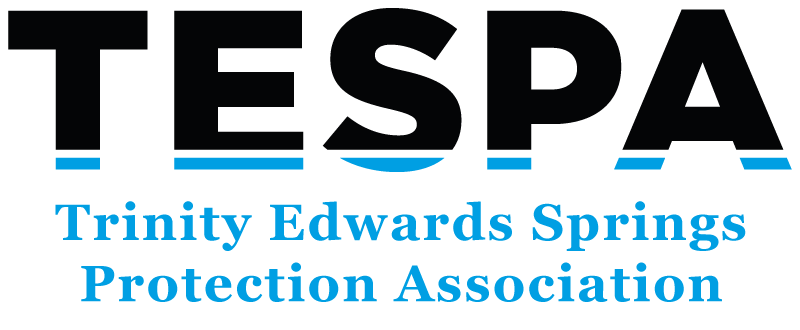
This week the SOAH Administrative Law Judge assigned to the Electro Purification contested case denied motions filed by both Electro Purification and GoForth Special Utility District opposing TESPA’s request for a subpoena commanding GoForth to produce certain documents relevant to the case.
When evaluating whether to grant or deny a permit, the Barton Springs Edwards Aquifer Conservation District must consider whether the proposed use of water is dedicated to a beneficial use at all times, including whether there are reasonable assurances of definite, non- speculative plans and intent to use the water for specific beneficial uses.
TESPA does not believe that EP has shown that its request for groundwater is not speculative. This belief is supported by evidence that GoForth does not need this water. In the 2016 Region L Water Plan, GoForth projects it will only need 525 acre feet of water by 2070, and GoForth has now agreed to purchase 4,000 acre feet of water from GBRA. Yet GoForth is continuing to pursue plans to purchase water from Electro Purification at the expense of rural Hays County landowners’ private property rights.
Because GoForth is not a party to the contested case, document production requests to GoForth can only be sent if the ALJ issues a subpoena. Consequently, TESPA’s attorneys sent the ALJ a request for a subpoena to GoForth to produce documents relevant to this case.
Both EP and GoForth filed responses objecting to our subpoena request, arguing that there was not good cause for issuing the subpoena and that TESPA’s requests were overboard, burdensome, not relevant and merely intended to harass GoForth. The SOAH ALJ determined these arguments were “unfounded” and that “TESPA’s requests, although broad, appear to address an important issue in this case.” The ALJ issued the subpoena, which we have now served on GoForth.
GoForth has until mid-February to respond. This small victory is a big first step towards obtaining important documents from GoForth that will assist TESPA explore the intended use for this vast amount of groundwater and whether the District should issue or deny EP’s permit request for 912,500,000 gallons per day.”